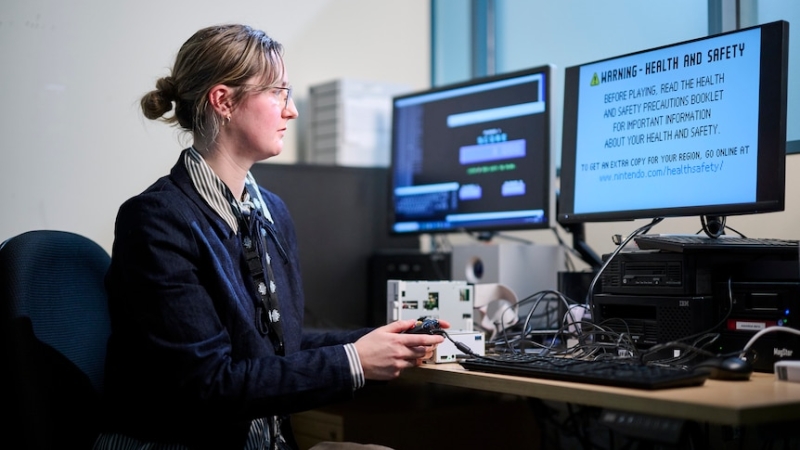The National Film and Sound Archive says technical and legal challenges make preserving video games difficult (Credit: Rohan Thomson)
In short:
The UK’s National Film and Sound Archive says the long-term collection and preservation of video games is at risk.
Legal and technical issues make it difficult for curators to preserve software and hardware.
What’s next?
Archives around the world are calling for more collaboration and resources to preserve gaming cultural heritage for future generations.
The National Film and Sound Archive (NFSA) says Australia’s made video game history is at risk of disappearing if technical and legal challenges cannot be overcome).
The NFSA survey of more than 50 cultural institutions around the world found inconsistencies in how games are preserved, under-resourced archivists and the closure of digital platforms that have left old games unplayable.
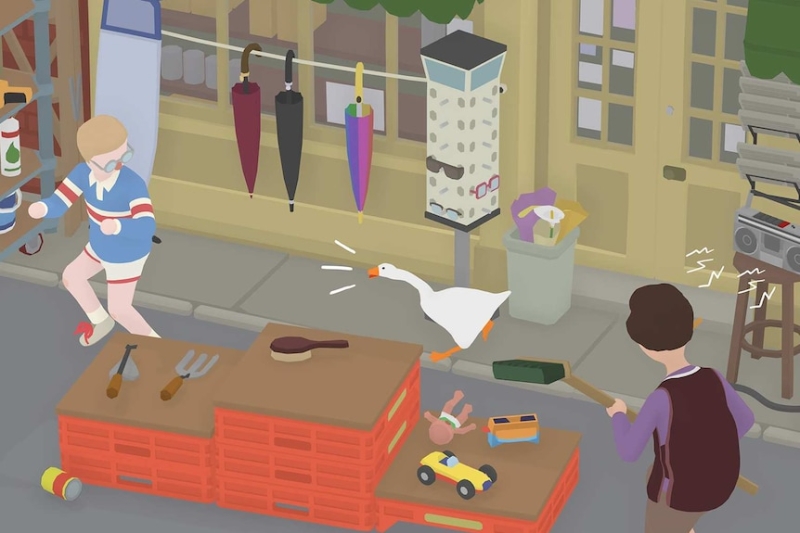
Development documents and files for Untitled Goose Game, developed by Melbourne-based company House House, have been added to the NFSA collection. (Credit: House House)
NFSA chief executive Patrick McIntyre said the game’s preservation faced many cultural, technical and regulatory challenges.
First, he said, many people still don’t understand why video games should be kept.
“Video games as a cultural industry are old hat – when you look back in history, people are just starting to take the form seriously,” he said.
And there are countless technical challenges.
“For example, when you digitise an old tape containing episodes of a TV show, you get one giant MPEG file. But for a video game it might be made up of tens of thousands of separate files, all made with different proprietary software,” Mr McIntyre explained.
“The irony is…old games are easier to preserve because they actually exist – what we’re seeing now is that a lot of games are only available as downloads.”
Australian archivists ahead of the game
McIntyre said Australia was actually in a better position than many other countries when it came to tackling the eventual regulatory challenge of protecting the game.
“I think there’s a general sense in Australia that we should be doing this conservation work,” he said. “We have a good relationship with the Interactive Games and Entertainment Association, which is the peak body for the video games industry.”
Would you recognise your home in a video game?
Photo shows a character standing next to a red and yellow postbox from a video game
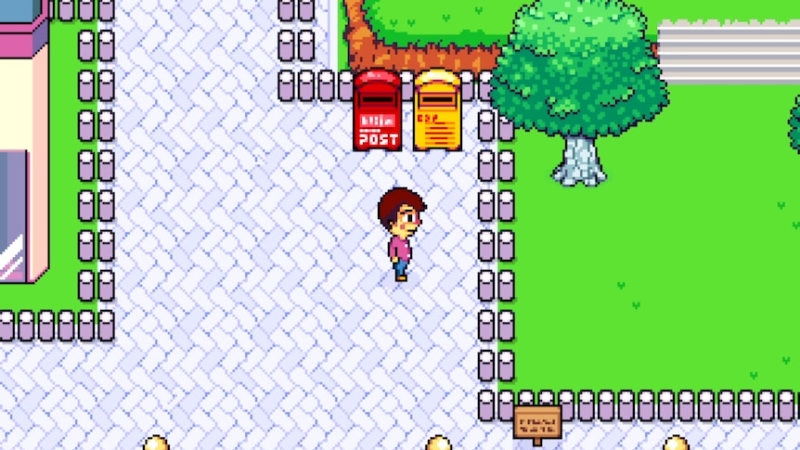
Video games are bringing places and cultures to life like never before. Your hometown might be one of them.
Jon-Paul Dyson, director of the International Center for the History of Video Games at the Strong Museum in Rochester, New York, co-authored the survey.
Video games are not an easy medium to preserve, he said, especially if you don’t have the staff or equipment to preserve them properly.
“Australia is actually a great example of a lot of different entities – museums, archives, government, industry – working together in a way that in many ways actually sets a model for a lot of places around the world,” he said.
Mr Dyson said some in the video game development industry were concerned about the impact archiving would have on their intellectual property. While he did not think it would be a problem, he said those concerns should be listened to.
“But the industry itself is often only interested in launching the next game and isn’t worried about looking back.”
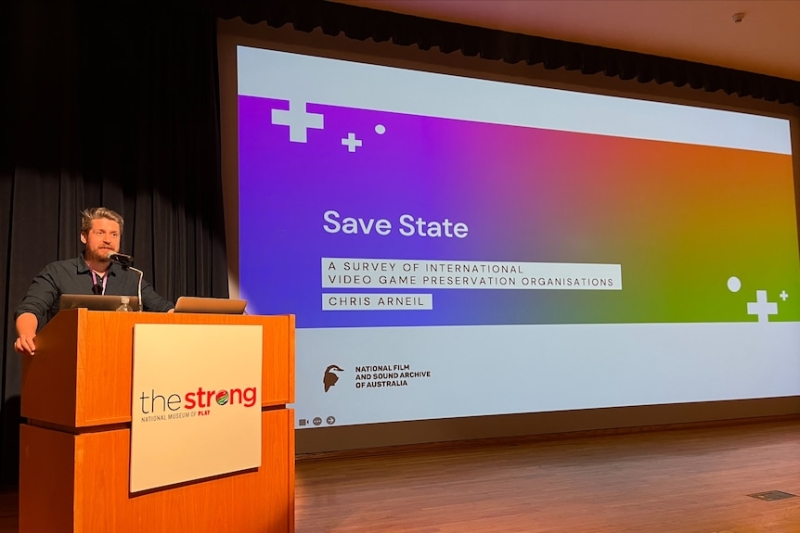
Chris Arneil, NFSA’s curator of video games, presents the survey results at the Strong Museum of Gaming in Rochester, New York. (Image credit: NFSA)
Passion for game preservation universal
Chris Arneil, the NFSA’s games planner, said: “Not only was it inevitable that we would lose, it was already happening.
“If you think about the games that you downloaded and played in the early days of the iPhone App Store, in many cases you can’t re-download and play them on your current phone.”
He said the developers may no longer even have the original files, making it impossible to play the games again, even though they may be only a few years old.
“There’s a common saying in the digital preservation field that ‘digital content is never preserved, it’s just in the process of being preserved.’ So the process of ‘archiving’ a modern digitally distributed game is actually never over,” he said.
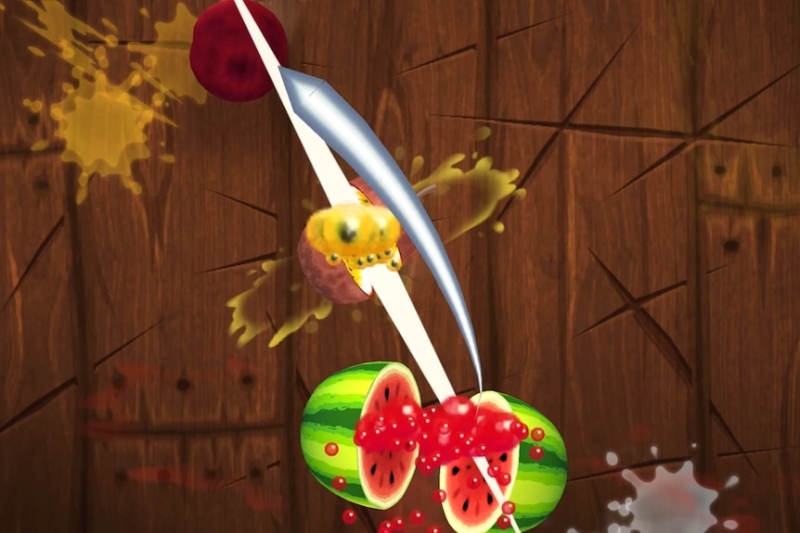
The classic version of the globally popular Fruit Ninja was recently included in the NFSA archives. (Image credit: Halfbrick)
Queensland-based developer Halfbrick Studios has just added their game to the NFSA series, with Fruit Ninja being one of the first Australian hits for the iPhone.
Halfbrick CEO Shainiel Deo said saving games is now part of its development process, but those early versions are still difficult to access.
“I think this means so much to the Australian people and we wanted to capture it in its purest form, so we spent some time creating a version of the game that’s accessible to the average person,” Mr Dio said.
“[Preserving the game] really wasn’t in our early plans, but now whatever we do we have to think about the longer term and make sure we’re building something that can be revived.”

